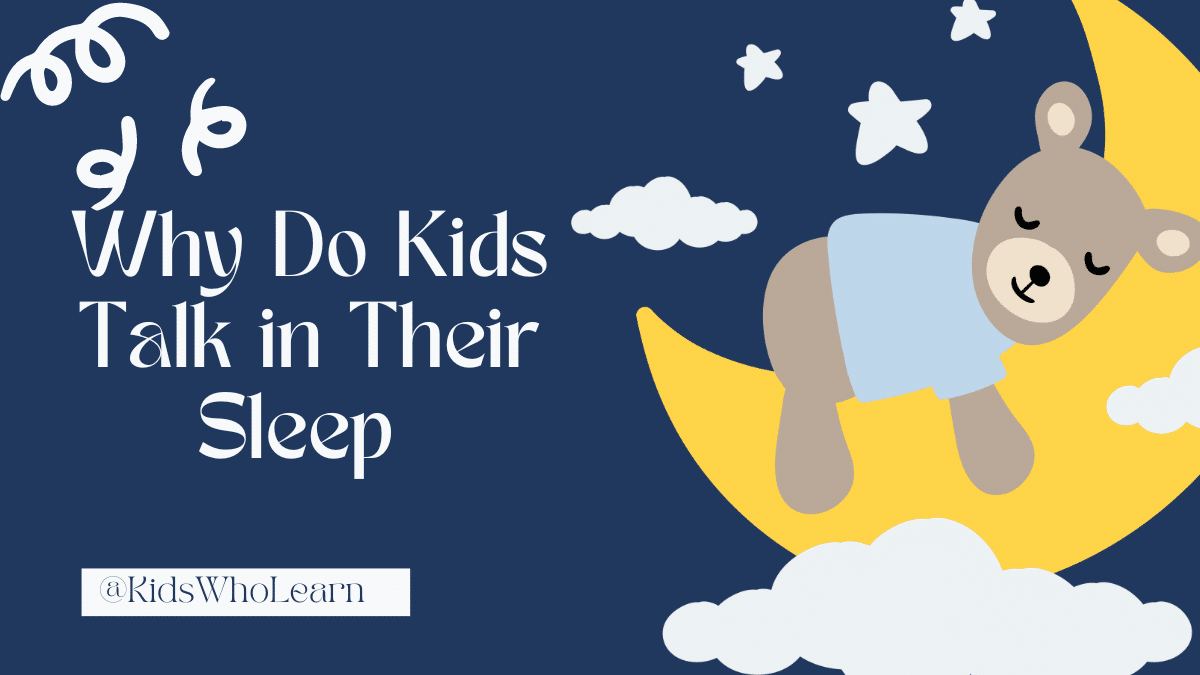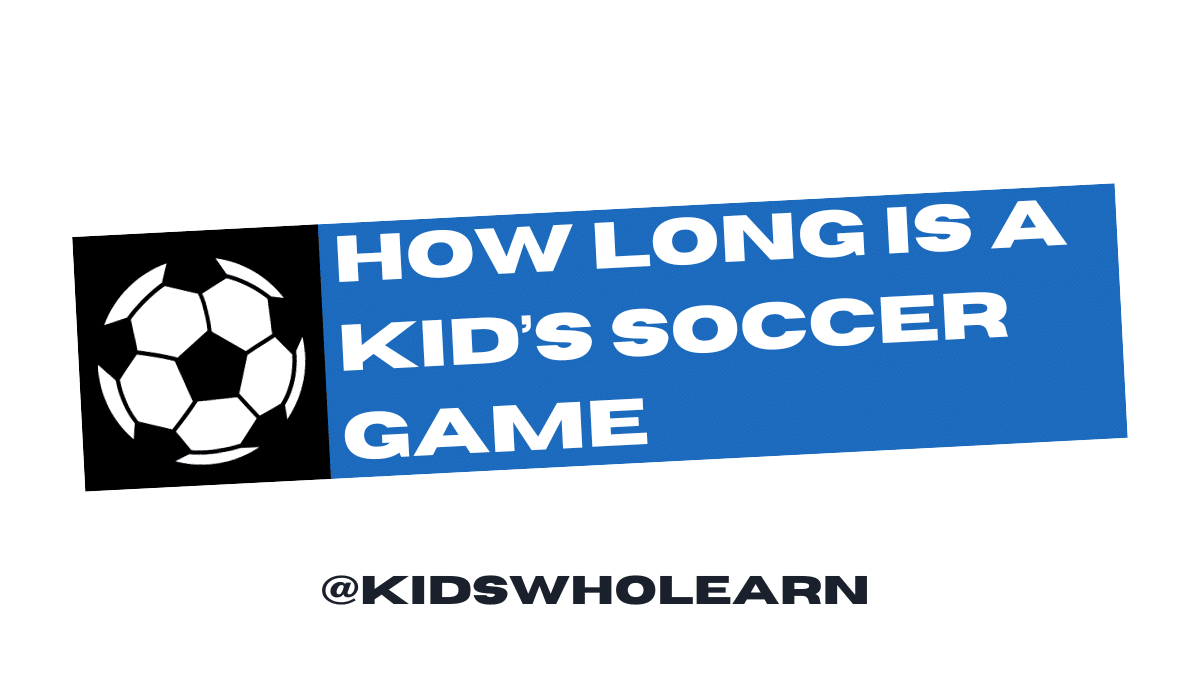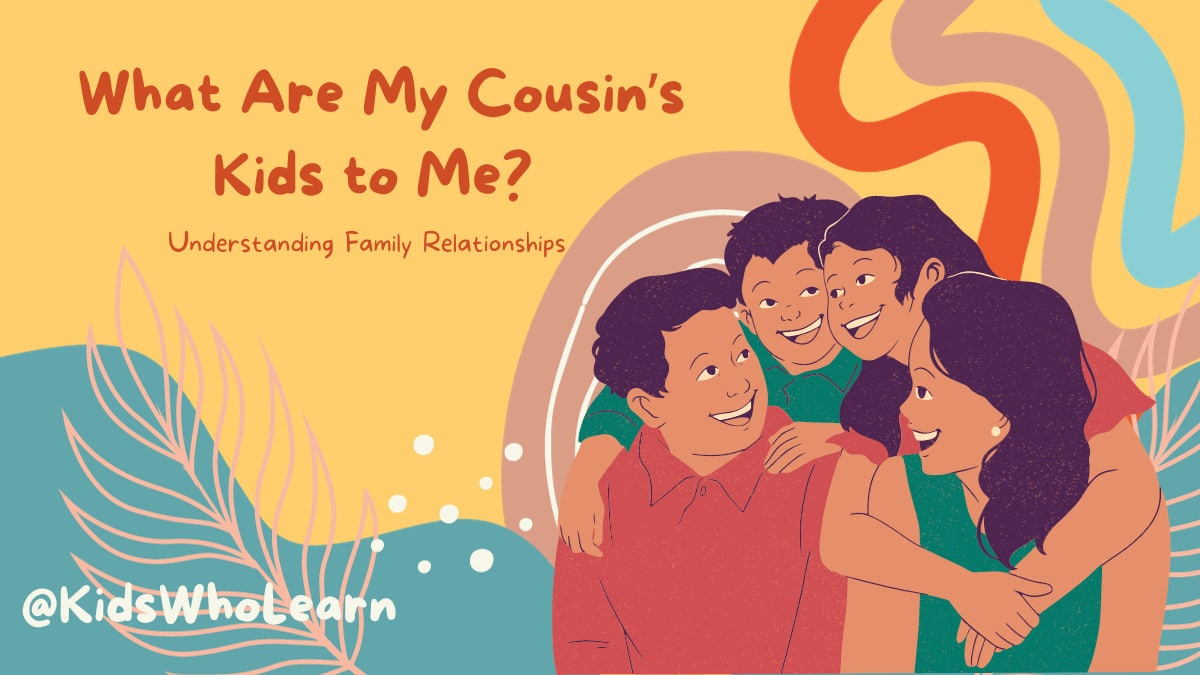Do your kids talk in their sleep? If so, you’re not alone. Sleep talking, also known as somniloquy, is a common phenomenon in children. In fact, up to 50% of children aged 3-10 talk in their sleep at least once a week. While it can be amusing to listen to your child’s sleep talk, you may wonder why they do it and if it’s something to be concerned about.
Understanding Sleep Talking in Kids
Sleep talking is a parasomnia, which means it’s a type of sleep disorder that involves abnormal movements, behaviors, emotions, perceptions, and dreams. It occurs during non-REM sleep, which is the deep, restorative stage of sleep that makes up about 75% of the night. Sleep talking can range from simple sounds and gibberish to complete sentences and even conversations. It can happen at any age, but it’s most common in children and adolescents.
The Science Behind Sleep Talking
The exact cause of sleep talking is unknown, but it’s believed to be related to the brain’s processing of information during sleep. During non-REM sleep, the brain is less active than during wakefulness, but it’s still processing sensory information from the environment and the body. Some researchers suggest that sleep talking is a result of the brain’s attempt to integrate this information with the dream content, leading to vocalization. Other factors that may contribute to sleep talking in kids include genetics, stress, anxiety, fever, and sleep deprivation.
Key Takeaways
- Sleep talking is a common phenomenon in children that occurs during non-REM sleep.
- The exact cause of sleep talking is unknown, but it’s believed to be related to the brain’s processing of information during sleep.
- While sleep talking is generally harmless, it may be a sign of an underlying sleep disorder or other health condition.
Understanding Sleep Talking in Kids
What is Sleep Talking?
Sleep talking, also known as somniloquy, is a sleep disorder that causes a person to talk during their sleep. It is a relatively common occurrence among children, but it can also affect adults. Sleep talking can range from simple sounds and mumbling to full sentences and conversations.
Sleep talking usually occurs during the non-REM sleep stage, which is the deeper stage of sleep. During this stage, the body is in a state of complete relaxation, and the brain is less active. This can cause the vocal cords to vibrate, producing sounds that are interpreted as speech.
Common Causes of Sleep Talking in Kids
There are several reasons why kids may talk in their sleep. Some of the most common causes include:
- Genetics: Sleep talking tends to run in families, so if a child’s parents or siblings talk in their sleep, they are more likely to do so as well.
- Sleep deprivation: If a child is not getting enough sleep, they may be more likely to talk in their sleep.
- Stress and anxiety: Kids who are dealing with stress or anxiety may talk in their sleep as a way to process their emotions.
- Fever: A high fever can cause a child to talk in their sleep.
- Sleep disorders: Kids who have other sleep disorders, such as sleepwalking or night terrors, may also talk in their sleep.
It is important to note that sleep talking is usually harmless and does not require treatment. However, if a child’s sleep talking is causing disruption to their sleep or the sleep of others, it may be worth speaking to a doctor to rule out any underlying sleep disorders.
The Science Behind Sleep Talking
Sleep talking, also known as somniloquy, is a common phenomenon that affects many children. Although it can be a bit unsettling for parents to hear their child talking in their sleep, it is usually harmless and does not indicate any serious underlying health issues.
Sleep Stages and Sleep Talking
Sleep is divided into several stages, each with its own distinct characteristics. During the first stage of sleep, your brain waves slow down, and your body begins to relax. In the second stage, your brain waves continue to slow down, and your body temperature drops. During the third and fourth stages, you enter into deep sleep, where your brain waves slow down even further, and your muscles become completely relaxed.
It is during these deep sleep stages that sleep talking is most likely to occur. This is because during deep sleep, your brain is still active, but your body is essentially paralyzed. This paralysis is known as atonia and is necessary to prevent you from acting out your dreams.
The Role of the Brain in Sleep Talking
Although the exact cause of sleep talking is not fully understood, researchers believe that it is related to the activity of the brain during sleep. When you sleep, your brain is still active, processing information and consolidating memories. It is thought that during sleep talking, your brain is essentially “leaking” some of this activity into your vocal cords, causing you to talk in your sleep.
There are several factors that can increase the likelihood of sleep talking, including stress, anxiety, and sleep deprivation. Additionally, certain medications and substances, such as alcohol and caffeine, can also increase the likelihood of sleep talking.
In conclusion, sleep talking is a common and harmless phenomenon that affects many children. It is most likely to occur during deep sleep stages, when the brain is still active but the body is paralyzed. Although the exact cause of sleep talking is not fully understood, it is thought to be related to the activity of the brain during sleep.
Effects of Sleep Talking on Kids
Sleep talking, also known as somniloquy, is a common occurrence among children. While it is generally harmless, it can have some effects on their sleep quality as well as their emotional and psychological well-being.
Impact on Sleep Quality
Sleep talking can disrupt a child’s sleep, causing them to wake up feeling tired and groggy. This is because sleep talking often occurs during the deeper stages of sleep, which are crucial for restorative rest. If your child is sleep talking frequently, it may be a sign that they are not getting enough quality sleep.
Emotional and Psychological Effects
Sleep talking can also have emotional and psychological effects on children. They may feel embarrassed or ashamed about talking in their sleep, especially if they say something they wouldn’t normally say while awake. This can lead to anxiety and stress, which can further disrupt their sleep and overall well-being.
It is important to reassure your child that sleep talking is a normal occurrence and nothing to be ashamed of. You can also encourage them to keep a sleep diary to track their sleep patterns and identify any triggers that may be causing them to talk in their sleep.
Overall, while sleep talking is generally harmless, it is important to monitor your child’s sleep quality and emotional well-being. If you have concerns about their sleep habits or behavior, it is always a good idea to consult with a healthcare professional.
How to Manage Sleep Talking in Kids
If your child talks in their sleep, you may be wondering what you can do to help them get a good night’s rest. Here are some tips for managing sleep talking in kids:
Creating a Sleep-Friendly Environment
One of the best things you can do to help your child sleep better is to create a sleep-friendly environment. Here are some tips:
- Keep the room cool and dark. Use blackout curtains or shades to block out light, and consider using a fan or air conditioner to keep the room cool.
- Make sure the bed is comfortable. Invest in a good mattress and pillows, and consider using soft, comfortable sheets and blankets.
- Establish a bedtime routine. Encourage your child to wind down before bed by reading a book, taking a warm bath, or doing some gentle stretches.
- Minimize distractions. Keep electronics out of the bedroom, and limit screen time before bed.
When to Seek Medical Help
In most cases, sleep talking is harmless and doesn’t require medical attention. However, if your child’s sleep talking is accompanied by other symptoms, such as sleepwalking or night terrors, it may be a sign of a sleep disorder.
If you’re concerned about your child’s sleep talking, talk to their pediatrician. They can help you determine if there’s an underlying medical condition that needs to be addressed. In some cases, a sleep study may be recommended to help diagnose the problem.
Remember, sleep talking is a common and usually harmless sleep behavior. With a few simple changes to your child’s sleep environment, you can help them get the restful sleep they need.
Conclusion
In conclusion, sleep talking is a common and harmless sleep disorder that affects many children. Although it can be alarming for parents, it is usually not a cause for concern.
There are many reasons why children talk in their sleep, including genetics, stress, and sleep disorders. It is important for parents to understand that sleep talking is not caused by a lack of sleep or a mental health condition.
If your child talks in their sleep, there are some steps you can take to help them sleep better. Encouraging healthy sleep habits, such as a consistent bedtime routine and limiting screen time before bed, can help improve the quality of your child’s sleep.
If your child’s sleep talking is causing them distress or disrupting their sleep, it may be helpful to speak with a healthcare professional. They can help determine if there is an underlying sleep disorder or provide additional strategies for managing sleep talking.
Remember, sleep talking is a normal and common occurrence in children and is usually not a cause for concern. With the right support and strategies, you can help your child get a good night’s sleep.
Frequently Asked Questions
What causes children to talk in their sleep?
Sleep talking, also called somniloquy, is a common sleep disorder that occurs during the non-rapid eye movement (NREM) phase of sleep. The exact cause of sleep talking is not known, but it is believed to be related to the brain’s processing of information during sleep.
How common is it for children to talk in their sleep?
Sleep talking is common in children and is usually not a cause for concern. It is estimated that up to 50% of children talk in their sleep at some point.
Is sleep talking in children a sign of a sleep disorder?
Sleep talking is not always a sign of a sleep disorder, but it can be associated with other sleep disorders such as sleepwalking, night terrors, and sleep apnea. If you are concerned about your child’s sleep talking, it is best to consult with a healthcare professional.
Can sleep talking be harmful to children?
Sleep talking is generally not harmful to children. However, if your child is sleep talking excessively or is experiencing other sleep-related problems, it is best to speak with a healthcare professional.
How can parents help their child who talks in their sleep?
Parents can help their child who talks in their sleep by creating a calming bedtime routine, establishing a regular sleep schedule, and creating a sleep-conducive environment. Additionally, it is important to avoid stimulating activities before bedtime, such as watching TV or playing video games.
At what age do children typically stop talking in their sleep?
Children typically stop talking in their sleep as they get older and their sleep patterns mature. However, some children may continue to talk in their sleep into adulthood. If you are concerned about your child’s sleep talking, it is best to consult with a healthcare professional.







